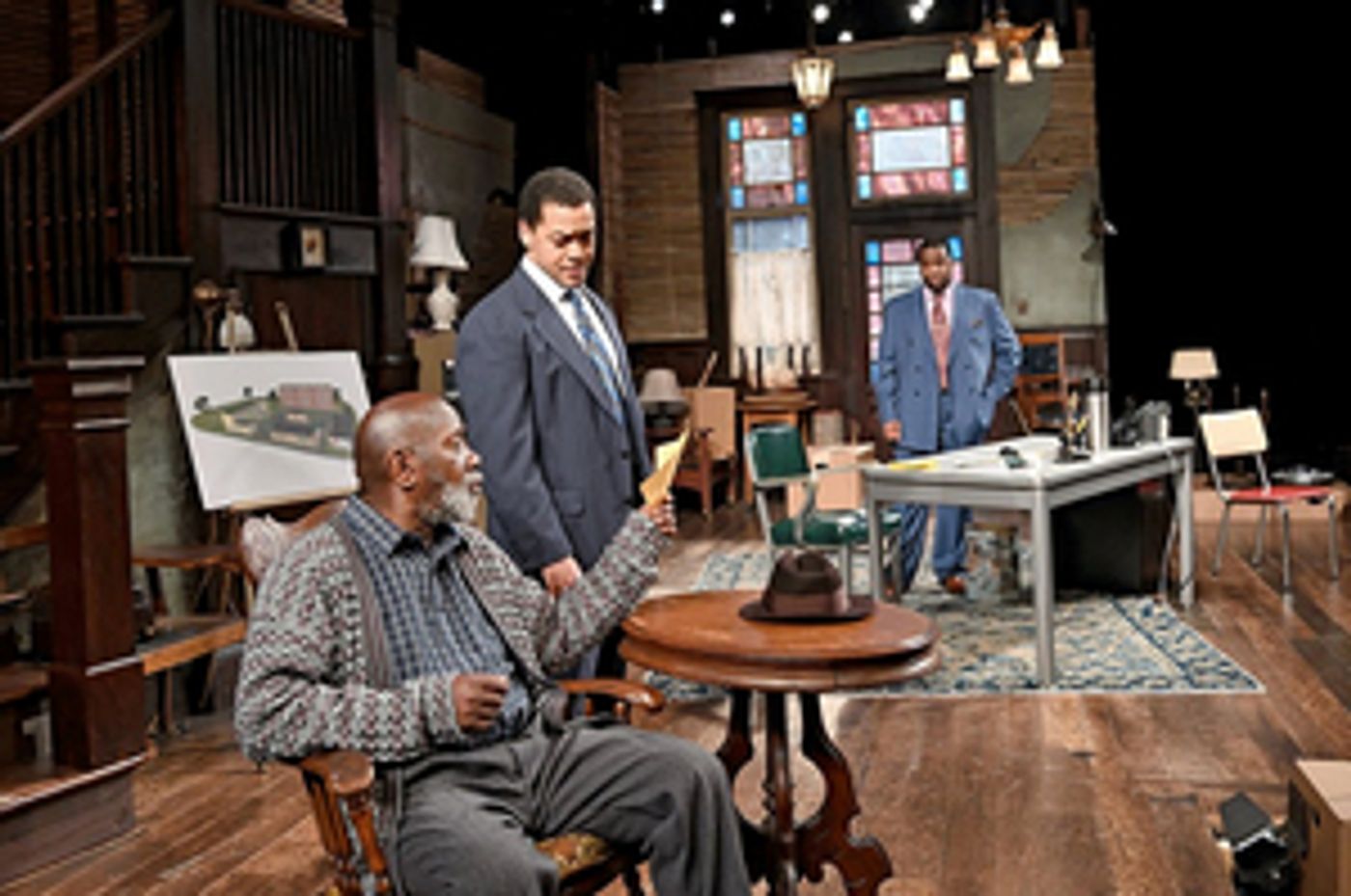Trinity REP Scores a Hole-in-One with August Wilson's RADIO GOLF

Some shows seek to entertain; think the first act of George Bernard Shaw's Pygmalion. Some seek to inform; think the second act of George Bernard Shaw's Pygmalion. What director Jude Sandy has come up with in this amazing production of August Wilson's RADIO GOLF is a play that is both wildly entertaining and yet manages to grapple with the most serious conflicts of our time. RADIO GOLF is both powerful and hilarious, often at the same time. It's running time is over two hours and forty-five minutes, but, trust me, you'll never glance at your watch.
So what's it about? This is the last work in Wilson's American Century Cycle which traces the African-American experience as it played out in Pittsburgh in the Twentieth Century. In RADIO GOLF, Harmond Wilks (played by Joe Wilson), an Ivy League-educated man who has inherited a real estate agency from his father, his ambitious wife Mame (Tonia Jackson) , and his friend Roosevelt Hicks (Omar Robinson) want to redevelop the Hill District in Pittsburgh. The project, called the Bedford Hills Redevelopment Project, includes two apartment buildings and high-end chain stores like Starbucks and Whole Foods. Harmond is also about to declare his candidacy to be Pittsburgh's first black mayor. Roosevelt has just been named a vice-president of Mellon Bank and has been tapped by a white, under-indictment businessman, Bernie Smith, to help him acquire a local radio station at less than market value, which is possible through a minority tax incentive. A complication arises when Harmond discovers that the house at 1839 Wylie, slated for demolition, was acquired illegally. Harmond offers the owner of the property, Elder Joseph Barlow (Ricardo Pitts-Wiley) market value for the house, but the owner refuses to sell, instead he and handyman Sterling Johnson (as rendered by JaMario Stills) work to rehabilitate the place. At the same time, Harmond and Barlow discover a deeper bond-they are, in, fact, cousins. Harmond decides the only way to proceed is to build around the house, which will require minor modifications to the planned development, and calls the demolition company to cancel the demolition. Roosevelt sees no reason to delay since no one but Harmond, Roosevelt, Mame, and the house's owner know the truth, a view Mame supports. RADIO GOLF becomes a which-side-are-you-on story, pitting the rich and ambitious who side with the poor versus the rich and ambitious who do not.
So what makes it such a great show? First of all would have to be the performances, and first among them would have to be Ricardo Pitts-Wiley as Elder Joseph Barlow. He is a scream, and whenever he is on stage, the play belongs to him. His best line is absolutely wordless as he eyeballs Roosevelt Hicks , fresh off the links in his golf togs, and sadly shakes his head. Joe Wison never gives a bad performance; his Harmond Wilks is convincing both as the up-and-coming entrepreneur, and once he has turned around. Both Jackson and Robinson were fun to watch as Harmond's wife and best friend, respectively. Extra credit to JaMario Stills, who had to step in last minute when Dereks Thomas, who was scheduled to play Sterling Johnson, took a spill a few days ago. Stills delivered his lines so skillfully and often hilariously (albeit from notes) that the production was unharmed.
Anything else? Michael McGarty and Baron E. Pugh's set looked like it was transported in one piece from the old NBC sitcom, Sanford and Son. It was a nice touch having former Trinity great Ed Hall's photo up on the wall among the pictures Harmond has hung up.
Apparently, Wilson never saw Radio Golf as a finished project. Pity he had to miss this one.
Radio Golf runs until March 1 in the Dowling Theatre at the Trinity Repertory Company, 201 Washington St. In Providence. The venue is completely handicapped accessible. For tickets call the box office at (401) 351-4242 or go to www.trinityrep.com
Photo Credit: Mark Turek
Videos
